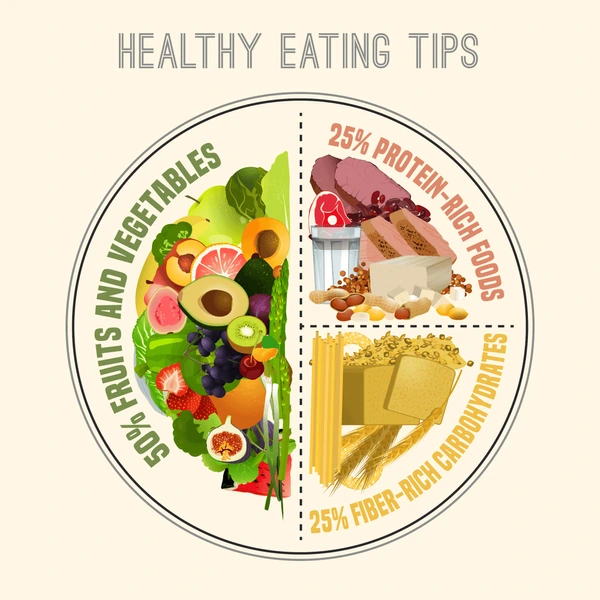
A lot of people themselves are unaware of their weight-loss objectives. Tons of information regarding diets and exercises is available on the internet, which makes choosing the right method even more complex.
Registered Dietitians can help you set a weight loss journey that is both safe and effective. Learn how working with an RD can help sustainable weight loss.
What is a registered dietitian?
A registered dietitian (RD) is a licensed nutrition expert with formal education, clinical training, and certification to provide personalized dietary guidance.
Before going into how an RD can facilitate weight loss, it is necessary to know what a registered dietitian is. An RD is a nutrition expert who specializes in food and nutrition after completing extensive education and training in dietetics.
Most of them hold undergraduate degrees in dietetics, have finished a supervised practice program and passed a national examination. Some of them also possess advanced degrees and specialized certifications.
What is a dietitian degree called?
A dietitian degree is typically called a Bachelor’s or Master’s degree in Dietetics, Nutrition, or a related field.
The usual degree for someone interested in becoming a dietitian would be a Bachelor of Science in Dietetics/Nutrition or something like that. Most people go for internships in the field of dietary science and then sit for the national exams to become Registered Dietitians.
Do Dietitians Provide Personal Nutrition Plans?
Yes, dietitians provide personalized nutrition plans tailored to individual health needs, goals, and conditions for effective dietary management.
One major way through which registered dietitians help you reduce your weight is by coming up with personalized nutrition plans depending on your individual needs, desires, or goals.
They come up with realistic eating plans that will not only suit the individual’s lifestyle but also enable them to adapt to healthy eating habits without much struggle. Personalized solutions are more likely to last longer because they align with the unique circumstances surrounding an individual.
How do you reduce belly fat?

To reduce belly fat, combine a balanced diet, regular exercise, adequate sleep, and stress management for effective results.
One way of decreasing stomach fat is to eat a balanced diet and perform regular exercises. Eat whole foods instead of processed ones, avoid sugar and also focus on cardio and strength training. Adequate amounts of sleep and stress reduction are important in reducing visceral fat.
Can dietitians prescribe weight loss pills?
No, dietitians cannot prescribe weight loss pills; they provide dietary advice and strategies, while prescription medications require a medical doctor’s approval.
Pills can only be prescribed by licensed health care providers, including physicians, physician assistants, or nurse practitioners. Registered dietitians cannot do this.
Can Dietitians Address the Root Causes Of Weight Issues?
Yes, dietitians can address the root causes of weight issues through personalized nutrition plans, lifestyle changes, and behavior modification strategies.
An RD can help determine and address the underlying problems impeding weight loss. Hormone imbalance disorders like thyroid diseases or polycystic ovary syndrome (PCOS) interfere with managing weight.
RDs can teach you healthier coping mechanisms to handle stress-related eating. There are some vitamin or mineral deficiencies that could affect metabolism and energy levels, hence impacting on weight loss.
Certain drugs can result in increased body weight. Registered Dietitians can give you an idea of how to manage this situation.
Focusing on these root causes may assist in eliminating hurdles that might have hindered your weight loss progress.
How Do RD’s help Behavior Modification and Goal Setting?
RDs help with behavior modification and goal setting by creating tailored plans, providing support, and setting achievable, personalized dietary and lifestyle goals.
Achieving successful weight loss entails changing deeply ingrained habits and behaviors. Celebrate small successes along the way. RDs will guide you to break your weight loss journey into little steps at a time.
Discuss possible challenges with a registered dietitian. They will provide strategies for overcoming them. Bring friends and family members into the loop so they too can become part of your weight loss journey.
Meet regularly with a registered dietitian promotes accountability. Ensure that healthy practices are being maintained.
How Do RD’s Help You With Diet Plan Adjustment?
RD’s help with diet plan adjustment by monitoring progress, evaluating results, and making necessary changes to optimize nutrition and achieve goals.
Weight loss can be a non-linear process, with adjustments needed over time. Registered Dietitians employ various techniques to assess weight, body measurements, and body composition.
If your weight loss stops, an RD can help you identify what is causing it and make necessary changes to your plan. As your body changes and adapts, an RD will make necessary modifications to your eating plan.
How to lose weight fast in 2 weeks?

To lose weight fast in 2 weeks, focus on a balanced diet, regular exercise, hydration, and sufficient sleep while avoiding processed foods.
Cutting down your calorie intake, increasing physical activities and drinking a lot of water can help you rapidly lose weight within two weeks. Stick to lean meats, vegetables, whole grains and avoid processed foods and sugars. Nonetheless, having rapid weight loss is usually not sustainable or healthy.
What are the five foods that burn belly fat?
Five foods that may help burn belly fat include lean proteins, whole grains, avocados, berries, and green tea.
Following are the food items that may help burn belly fat: Avocado, Green tea, Berries, Whole grains and Fatty fish (e.g., salmon)
What burns the most belly fat?
Five foods that may help burn belly fat are lean proteins, whole grains, avocados, berries, and green tea for metabolism.
One of the most effective exercises for burning off stomach fat is high-intensity interval training (HIIT). When combined with HIIT, low-refined sugar diets and high-protein diets can maximize fat loss.
Proper diet and regular exercise lies at the base of a successful weight loss journey.
How much do you have to weigh to be prescribed weight loss pills?
Weight loss pills are typically prescribed if your BMI is 30 or higher, or 27 with obesity-related conditions.
Weight loss drugs are typically prescribed for patients who have diabetes or hypertension with a body mass index (BMI) greater than 27 or a BMI score above 30.
How do you qualify for weight loss medication?
You qualify for weight loss medication with a BMI of 30 or higher, or 27 with obesity-related health conditions.
Normally it takes a Body Mass Index (BMI) of 30 or more and related medical conditions such as diabetes. However some dietitians may consider a BMI of over 27 obese individuals. A doctor will review their medical history, prior attempts at losing pounds and general health before prescribing medications.
Conclusion
A registered dietitian can be a valuable source of support during your weight loss journey. They can offer tailored counseling; training and guidance tips that would enable you to deal with various complexities in nutrition and personal behavior transformation. Their Expertise will help you create an approach towards shedding off those extra pounds to guarantee life-time health benefits while achieving your desired targets.
